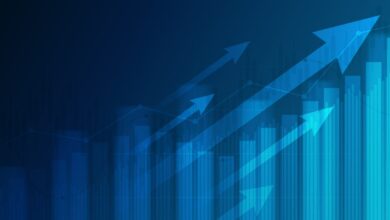Reputation isn’t the only thing at stake as mistrust grows

Reputation isn’t the only thing at stake as mistrust grows
Insurance News
By Kenneth Araullo
Companies are facing increasing challenges in managing threats to their reputation amid a rapidly evolving risk landscape marked by global shocks and the emergence of AI-driven disinformation. According to Gallagher’s insights, these developments are making crisis management even more difficult, especially as many corporate communicators are already fatigued.
The past few years have seen a series of disruptive events, highlighting the need for businesses to mitigate reputational risks. Some of the major events we have seen in the past four years include the global COVID-19 pandemic, increased trade wars and conflicts, rising geopolitical tensions, disinformation campaigns, and the spread of AI-generated fake news.
This period of recurring and interconnected crises is sometimes called a “multi-crisis” or “perpetual crisis.”
These global shocks have had ripple effects far beyond their points of origin, impacting supply chains, financial markets, and public sentiment more broadly. The uncertainty surrounding where the next crisis will emerge has heightened concerns about how companies will manage these unforeseen risks.
Reputation, while not a standalone risk, is a result of other risk events, such as cyberattacks, product recalls, criminal activity, and negative media coverage. Gallagher emphasizes that it is difficult for companies to effectively monitor the financial impact of reputational damage, as few organizations have the metrics to manage it within an enterprise risk management framework. This challenge leaves many companies vulnerable to the consequences of reputational damage.
A 2020 study provides context for understanding the financial threat posed by reputational damage, noting that intangible assets, including brand and reputation, represent up to 90% of the market value of S&P 500 companies. This underscores the potential damage that reputational risks can have on a company’s financial strength.
mistrust caused by misinformation
The rise of disinformation, particularly AI-powered disinformation, has exacerbated these challenges. While propaganda has long been a tool of politics and conflict, the growing reliance on fake news, often accepted as fact, poses a growing threat. This trend has been intensified by the widespread use of generative AI to generate written, audio, and visual content, distorting the narrative about politics, institutions, and individuals.
Laura Hawkes (pictured above, right), head of intelligence at AnotherDay, a Gallagher Group company, points to the growing prevalence of misinformation on social media, which affects businesses and conflict zones alike.
“What our corporate clients are concerned about is that because of the way social media is now used and consumed, anything posted online about their organization could be seen as fact,” Hawkes said. “It almost doesn’t matter whether it’s true or not.”
As Jake Hernandez (pictured above, left), CEO of AnotherDay, notes, AI technologies are rapidly advancing, becoming more widely available. He points to how troll farms, notably the St. Petersburg-based Internet Research Agency, attempted to influence the 2016 U.S. election.
“In 2024, the biggest election year in history, there is potential for disinformation to get much worse, especially if there are no proactive measures to address it,” Hernandez said.
Read more: Managing Energy Transition Risks in a Changing Political Landscape
In light of these challenges, companies are rethinking their approach to crisis management. The COVID-19 pandemic has exposed gaps in crisis management strategies, including unclear roles and responsibilities, inadequate preparedness, and lack of flexibility to return to normal operations. As a result, many companies find themselves stuck in a continuous cycle of crisis response.
According to International SOS, 80% of senior risk professionals expect burnout to significantly impact their businesses in the coming year, while only 40% feel able to manage the challenge. While business leaders work to protect their companies’ reputation and market value, they are facing additional pressures due to ongoing crises.
Trust Erosion – How Should Companies Deal With This Problem?
In a world where algorithms create echo chambers and news cycles become more sensational, trust in institutions has eroded. Yet Gallagher’s findings, backed by the 2024 Edelman Trust Barometer, suggest that people are increasingly placing their trust in their personal experiences, including their workplace and their interactions with familiar organizations.
According to the Edelman study, business ranks first among the most trusted institutions worldwide, ahead of NGOs, governments and the media. In 27 of the 28 countries surveyed, respondents reported higher levels of trust in their CEOs than in other business or political leaders.
As a result, reputation risk management strategies are shifting from an “outside-in” approach, which focuses on external perception, to an “inside-out” model that emphasizes internal communications and company culture. In this new era of crisis management, organizations are increasingly embracing decentralized communications, with a greater emphasis on two-way dialogue between employees and management.
By improving internal communication channels, companies can enhance their culture and build trust within their organizations. For example, virtual meetings allow companies to gather feedback from employees and engage in meaningful discussions on various topics.
Lisanne Sisson (pictured above, center), managing director of enterprise risk management at Gallagher, emphasizes the importance of building relationships and preparing for crisis events through existing networks.
“If you have already built relationships with key people, know what needs to be escalated, and have a network of partners in place, you will be more agile in responding. Muscle memory and connective tissue are what will help the organization respond effectively,” says Sisson.
What do you think of this story? Feel free to share your comments below.
Related Stories






Fetching comments…